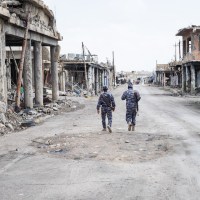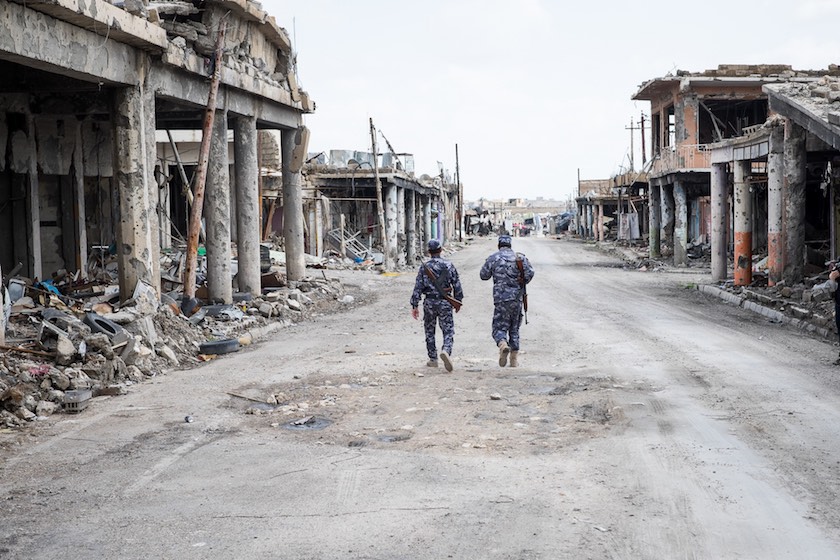I thought I understood.
After five years in Iraq with Preemptive Love Coalition, sitting with hundreds of people who’ve endured sweeping violence, I thought I understood why they had to run, why they would travel through minefields and wilderness to put their families into a plastic life raft and risk drowning in the Aegean Sea.
I thought I understood why they were so desperate, but that was before I went to Sinjar.
On August 3, 2014, ISIS militants attacked the Yazidis living around Sinjar Mountain in northern Iraq. They killed thousands of people, enslaved young women and children, and besieged thousands more stranded on top of the mountain.
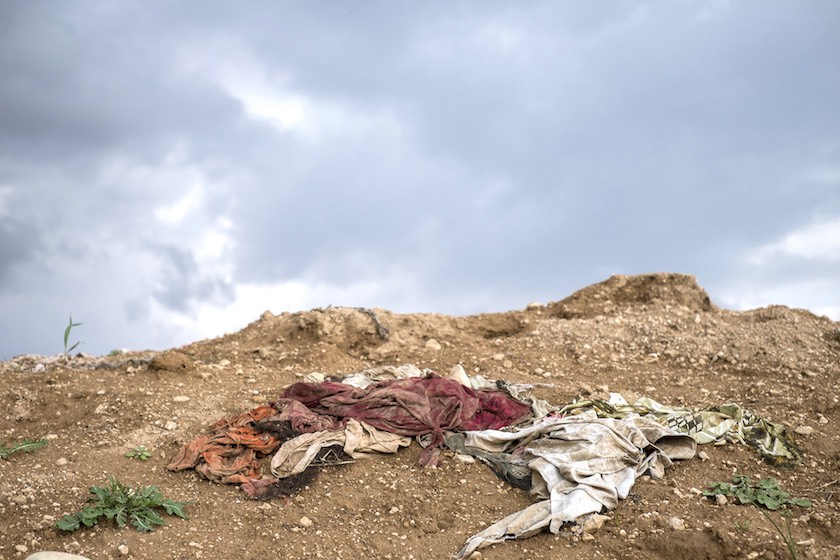
And honestly, despite my recent visit to Sinjar, I still don’t fully understand. But after stooping over a mass grave, tip-toeing around mounds of prayer beads and children’s bones as mortar rounds, airstrikes, and chemical munitions thudded in the distance, I got a little closer to understanding.
They run because they have no other choice.
When the Kurdish forces responsible for protecting you flee without firing a shot in your defense, what else can you do? When an enemy like ISIS stands at your doorstep, totally committed to eradicating your people, what other choice is there?
ISIS is fighting a losing battle, and as they’re slowly pushed back, I also saw brave families choosing to come home.
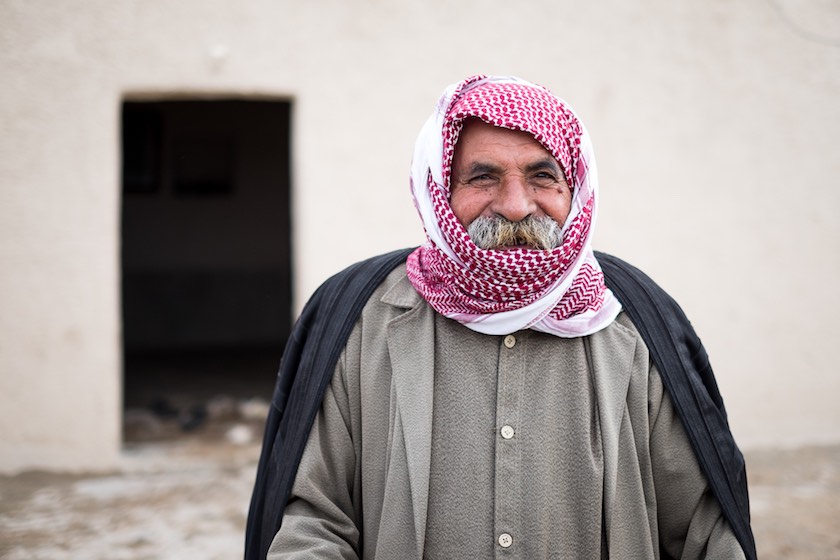
I saw stubborn farmers, hurrying to get their crops in the ground before the rains come, only mildly interested in the distant sounds of rocket fire, their impact clouds lining the horizon.
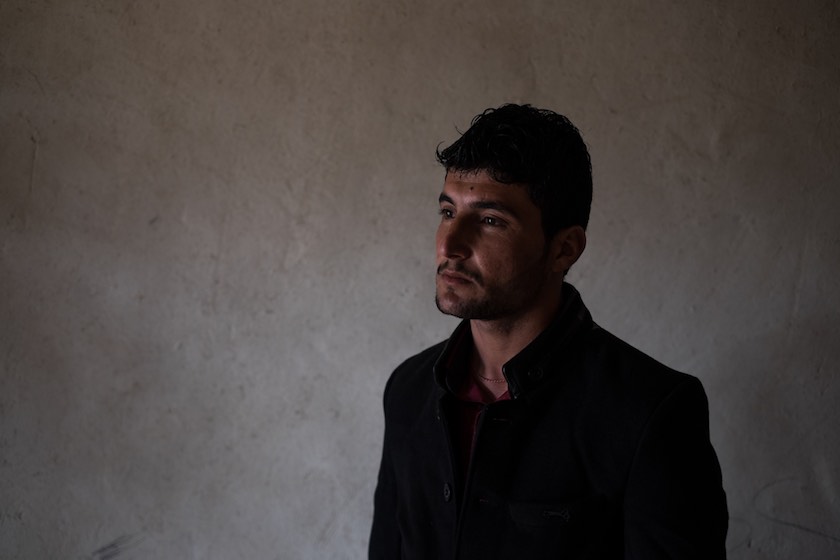
I saw young college graduates attempting to reopen burned schools, lecturing for free to rows of neatly-seated children who came because they want nothing more than to learn.

I saw mothers and fathers who had lost everything, once again living to the rhythms of normal life, fussing over babies, serving tea, and hosting guests.
I saw life returning to a place many have given up for dead. Slowly. Fitfully. But returning all the same.
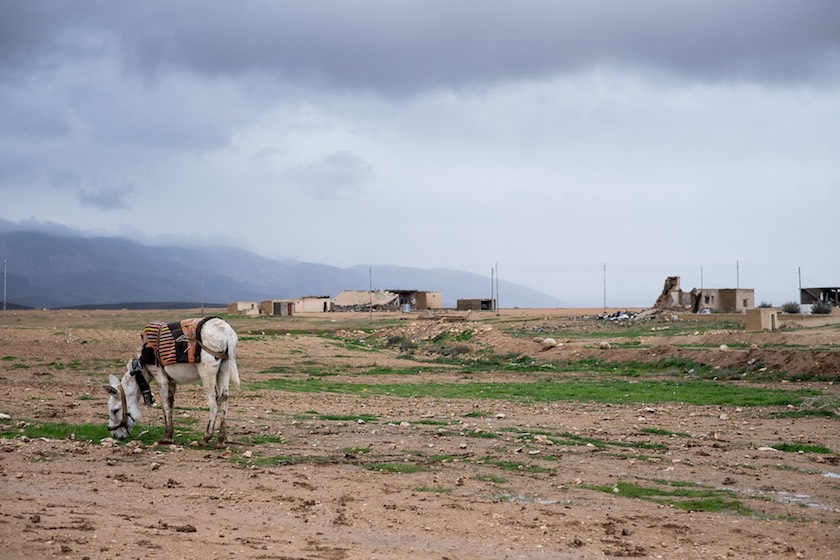
We may not be able to understand why they run or what they’ve endured, but if we listen, we can understand what they need in order to return home and rebuild—and what it means to offer them dignity.
So on our recent visit to Sinjar, we asked.
Farmers told us they need more seeds and generators to power flour mills and homes to make their whole communities more self-sufficient.
Teachers and parents asked for books and chairs, help paying salaries, and resources to clean up destroyed schools.
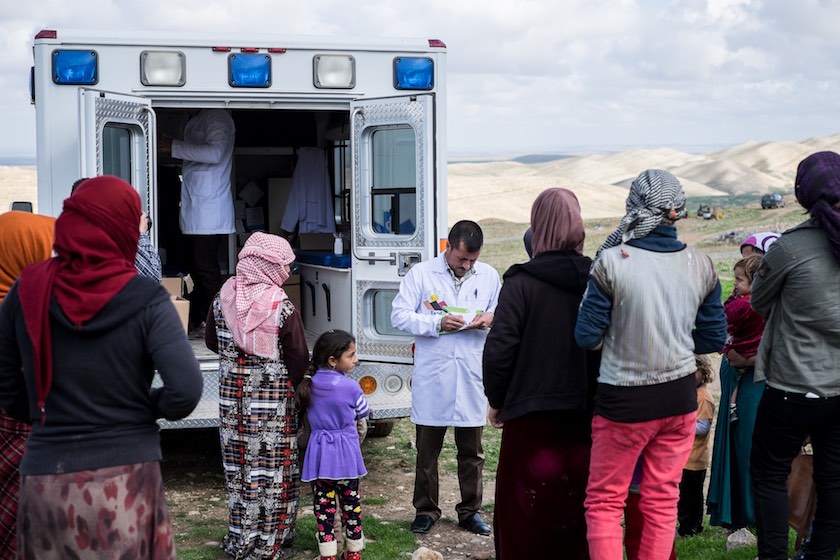
Physicians asked for more medications and equipment to help them treat people who would otherwise not have access to medical care.
Whether or not we understand why they run, it matters that we stand with those who’ve endured sweeping violence. But no less critical is that we stand with them as they seek to return and rebuild.

Whenever we’re confronted with last-minute, high impact requests like the ones we heard in Sinjar, our monthly sponsors are the ones who enable us to respond. If it weren’t for all of you who give each month, a quick response to urgent needs just wouldn’t be possible.
We’ll continue to share stories of those who run—and those who return. Will you come alongside these brave families and help them rebuild? Sign up to become a monthly sponsor.
Photos (top to bottom): Fighters on their way to the front line near Sinjar City; clothes near a mass grave; farmer from Sinjar; volunteer teacher educating Yazidi children; Sinjar farm; mobile medical clinic serving Yazidi families

